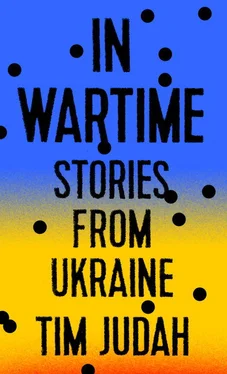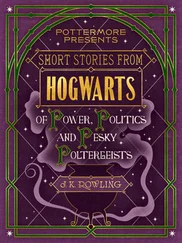Before the war, said Dyachenko, the view of Patriot of Ukraine was that since independence not only had the country’s new army been undermined, but Ukraine’s youth too had been virtually emasculated by being brought up with computers and video games and not thinking about protecting the country, including taking up arms if necessary. So, he said:
We did some military training. This was mostly in the summer because most of the youth who came were at school or university students. We would go to the Carpathians or Crimea, to the countryside, and we set up camp. We used fake guns—we did not have real guns—we dreamed of them, but we did not have them! We also encouraged young people to give up bad habits and do sports and so we had a lot of winners in sport, for example in tae kwon do and boxing.
Dyachenko joined in 2011. He was studying for a doctorate in history and the subject was related to Andriy Melnyk, the leader of the wartime Organization of Ukrainian Nationalists (OUN), whose followers had, between 1941 and 1944, been involved in a bloody conflict with Stepan Bandera.
Given that Patriot of Ukraine was an eastern Ukrainian organization and existed in part in the same political and peripheral subculture as Andrei Purgin’s Donetsk Republic, which was also founded in 2005 and carrying out paramilitary training, I asked if Dyachenko had known about it. “We didn’t just know about them,” he snorted, “they were our biggest enemies!”
We knew about their books and presentations and separatist exhibitions, and sometimes we tried to disrupt their meetings. They put up their tent and handed out separatist books, so we would come and take them away and tear them up. They tried to do the same to us but we were stronger. Ninety percent of our members were fit young men and girls, but theirs were mostly pensioners nostalgic for the Soviet Union. They could not beat us physically!
Despite their apparent physical prowess, work for hardcore Ukrainian nationalists seems to have been just as tough as it was for Donetsk Republic and other pro-Russian fringe movements in the east. “The people of the region were not really into politics,” admitted Dyachenko. “They seemed apolitical. It was home, work and family for them, and now we have to pay for this with a destroyed Donbass and all the consequences of that.”
When Dyachenko said that Patriot of Ukraine was founded in 2005, he was only telling half the story. Its history is rather longer and more complicated and it is intimately bound up with that of the development of the far-right in Ukraine.
The story began in October 1991 when the Social-National Party of Ukraine (SNPU) was formed in Lviv. This tiny extreme nationalist organization had its roots in three even tinier parties. One was led by Oleh Tyahnybok, a medical student, and another by a young man called Andriy Parubiy. According to Anton Shekhovtsov, an academic who has followed the far right in Ukraine, the new party wanted a national and social revolution and believed Russia to be the cause of all Ukraine’s ills. For its symbol, it adopted a Wolfsangel or “Wolf’s Hook.” In 2011 Shekhovtsov wrote:
Although its original meaning was not associated with National Socialism, the Wolfsangel—due to its employment by several SS Divisions—had become a symbol of many post-war European and neo-Nazi organizations. The SNPU modified the symbol by mirroring it (just as they seemed to mirror “National Socialism”), so that it looked like a letter “N” with a vertical line “|” in the middle of the letter. According to the SNPU’s leaders, the symbol meant “the Idea of the Nation.” The nation as such was—and still is—seen by the party’s ideologists as a “community of blood and spirit.”
By the time Shekhovtsov was writing, the SNPU was no more. It had been a fringe political group with no electoral success. Tyahnybok, however, had been elected to Parliament in 2002, though not on an SNPU ticket but on that of the party of Viktor Yushchenko, who would become president in the wake of the Orange Revolution of 2004. It was during this period that the SNPU, which had been establishing contacts abroad, notably with France’s National Front and Austria’s Freedom Party, decided that to emulate their success they should clean up their act. In 2004 it changed its name to Svoboda or “Freedom” and dropped the Wolfsangel. It also disbanded its paramilitary “guard unit,” formed by Parubiy in 1996, which was called Patriot of Ukraine. They and their predecessor organization loved nothing more than parading in black uniforms by torchlight. According to Shekhovtsov, the SNPU also “recruited skinheads and football hooligans.” When Svoboda dissolved it, he says in a footnote to his 2011 examination of the far right, the Kharkiv branch of Patriot of Ukraine “refused to disband and renewed its membership in 2005.” And, if it had not been for the war, it would have remained a footnote.
Meanwhile, in the west of Ukraine, the new Svoboda began to make advances in local elections and finally, in the October 2012 general election, it made its big national breakthrough, becoming the fourth-largest party in Parliament. It gained 10.44 percent of the vote and won thirty-seven seats out of 450. It had not been a smooth and easy progression, though. In 2004, for example, just after the founding of Svoboda, Tyahnybok made a speech which was to dog him for years in his quest for respectability. Eulogizing a commander of the UPA, the wartime insurgents, and using insulting epithets for Russians and Jews, he said:
The enemy came and took their [UPA’s] Ukraine. But they [UPA fighters] were not afraid; likewise we must not be afraid. They took their automatic guns on their necks and went into the woods. They got them ready and fought against the Moskali, Germans, Zhydy, and other scum, who wanted to take away our Ukrainian state! And therefore our task—for every one of you: the young, the old, the gray-headed and the youthful—we must defend our native land!
Rising to his theme, Tyahnybok then told the crowd that they were the people the moskal’s’ko-zhydivska’ka mafia who ruled Ukraine feared the most. A case for inciting racial hatred against him was opened but then was dropped for lack of evidence, but he was expelled from Yuschenko’s parliamentary group. Tyahnybok and the party continued to stoke xenophobia and hatred, especially toward anything Russian. After its breakthrough in 2012 the party briefly became a significant voice, but many of its voters then were not particularly nationalist as opposed to just fed up with everyone else. Tyahnybok emerged as one of three prominent leaders of the Maidan revolution, and in the October 2014 general election his vote collapsed. The party failed to pass the 5 percent threshold to enter Parliament, and Svoboda evaporated as a political force. Tyahnybok had lost his touch. In the party’s western heartlands, elected local councillors had by now gained a reputation for being as corrupt as everyone else had been.
Meanwhile, the trajectory of Patriot of Ukraine, which was led by Biletsky, a former history student in Kharkiv, was utterly different. It subsisted on the margins of politics. In 2012, though, it suddenly came to international attention. In the run-up to the UEFA 2012 championship, soccer fans in places such as Kharkiv came under a Western spotlight. Chris Rogers, a reporter for Britain’s BBC Panorama program did an investigation into the racist chanting of Ukrainian soccer fans and witnessed some 2,000 Metalist Kharkiv fans making Nazi salutes and shouting “ Sieg Heil!” He then met a man called Vadym who took him to a fans’ bar which Rogers described as a “shrine to far-right extremism” decorated with swastikas, “white power” symbols and where there also seemed to be “an unhealthy obsession with Nazi Germany.” Vadym denied they were Nazis, however. Then we learn that he is a recruiter for Patriot of Ukraine and see a video allegedly of the group rounding up what we are told are illegal immigrants, who look Vietnamese, whom human rights groups noted in 2010 were among Patriot’s targets. Then Vadym says: “One race, one nation, one fatherland.” Patriot had to be ready, he explained, for civil war. “Of course nobody wants to have some war… but we must be prepared for everything.” Next Rogers was taken with what he described as soccer hooligans to see them being trained in knife-fighting techniques in a wood. He tells us that he has seen videos showing hundreds turning up for such events, but now there are only a handful. We watch them fighting with wooden knives. Then one masked recruit says: “We are learning to shoot and we are learning tactical combat and well military preparation, and we can take all this fight training onto the streets. I can also add, because my face is hidden, that these skills have already been used on the streets, and not just once.”
Читать дальше












